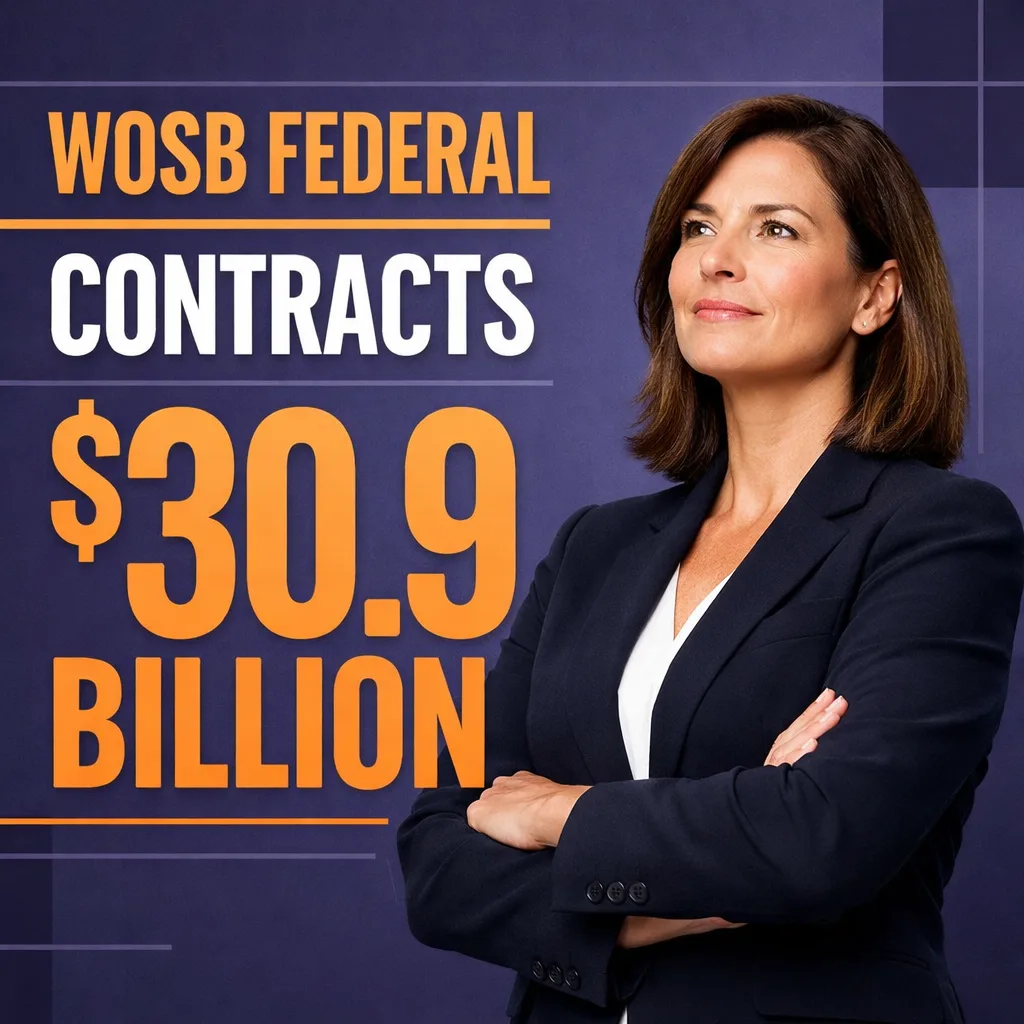
The Merchants Fund Stabilization Grants – Up to $10,000 Philadelphia Small Business Support
Up to $10,000 direct grants for Philadelphia small businesses. Spring/fall cycles. Equipment, facilities, growth funding. No repayment. Apply now.
Grant Overview
Direct Cash Grants for Philadelphia Business Owners Ready to Overcome Obstacles and Grow
Donor: The Merchants Fund
About: The Merchants Fund Stabilization Grant hands out up to $10,000 in direct funding to Philadelphia small businesses that need to overcome specific challenges or grab growth opportunities. This program isn’t your typical “submit and pray” situation – it’s built around the reality that sometimes a business just needs the right amount of money at the right time to make a real difference.
Since 1854, The Merchants Fund has been helping Philadelphia merchants through tough times, and that mission continues today with these stabilization grants. What started as support for retired merchants has evolved into something much bigger: a comprehensive approach to keeping Philadelphia’s small business community thriving. The Merchants Fund has provided support to Philadelphia merchants during times of financial hardship since 1854, making it one of the city’s oldest business support organizations.
The program runs twice a year – spring applications from March 1-31 with funding decisions by May 31, and fall applications September 1-30 with decisions by November 30. No endless waiting periods, no surprise deadline changes. You know exactly when to apply and when you’ll hear back. The predictable timeline is actually part of what makes this grant work for businesses – you can plan around it.
Who Actually Gets This Money
Let’s be honest about something – this isn’t free money for everyone who asks. The Fund focuses on “Changing the Narrative” for historically disadvantaged small businesses, helping them succeed, prosper and create generational wealth. They prioritize business owners who have faced systemic barriers to traditional financing, which includes women, minorities, and immigrants who often get turned down by banks or charged higher interest rates.
Your business needs to be physically located in Philadelphia with a customer-facing storefront. That includes food trucks and kiosks, but rules out home-based consulting or online-only businesses. The revenue sweet spot is between $50,000 and $750,000 annually – enough to show you’re viable, but not so much that you should be able to handle problems on your own.
Here’s where it gets tricky: you can’t have received a TMF stabilization grant in the last 24 months, and you can’t have even applied for one in the last 12 months. This rule exists because TMF understands how hard it can be to operate a small business, but Stabilization Grants are not to be used for monthly expenses and they do not gift funds to cover cash shortfalls.
Q: What if my business does both eligible and ineligible services?
A: Your primary business activity determines eligibility – check their comprehensive ineligible businesses list.
Q: Can I use this money to catch up on rent or payroll?
A: No, this isn’t for covering cash shortfalls or monthly operating expenses.
The Real Story Behind Historical Disparities
When TMF talks about addressing “historical disparities,” they’re not just using buzzwords. Philadelphia’s business lending landscape has real problems that affect who can access capital. A minority-owned restaurant might have the same credit score as a white-owned one, but face different lending terms or outright rejection. Women entrepreneurs often get asked different questions during bank meetings – questions about their husbands or how they’ll balance business with family.
The Fund recognizes these patterns and actively works to counter them. It’s not reverse discrimination; it’s acknowledging that the playing field isn’t level and trying to fix that. Similar programs like the Galaxy Grant for Women & Minority Entrepreneurs operate on the same principle nationwide.
What the Money Actually Pays For
Equipment purchases are big winners here. Maybe your restaurant’s refrigeration unit died, or your retail store needs a new POS system. Infrastructure improvements work well too – fixing flood damage, upgrading electrical systems, or making accessibility improvements.
Inventory for expansion is another solid use. If you’ve got a clothing store and want to add a new line, or you’re a manufacturer who needs raw materials for a big order, that fits. Technology upgrades count too – new software, computers, or machinery that improves efficiency.
What doesn’t work: general operating expenses, paying off existing debt, or vague “working capital” requests. The Fund wants to see specific purchases with specific outcomes. They funded Chabaa Thai Bistro with a $5,000 grant to help them recover from flooding caused by Hurricane Ida, which shows they support disaster recovery when it’s tied to specific repair needs.
Q: How detailed do my cost estimates need to be?
A: Very detailed – include invoices, price quotes, or vendor estimates for everything you’re requesting.
Q: What if I need the money for multiple things?
A: That’s fine, but document each expense separately with clear explanations.
Learning from Past Winners
Looking at funded projects gives you a sense of what works. Jay Pross launched streetwear brand Art History 101 in 2008; it was so successful that he opened his first brick and mortar location with TMF support. The pattern here is clear: specific problems, specific solutions, measurable outcomes.
The strongest applications connect current challenges to future opportunities. Don’t just say you need new equipment – explain how that equipment lets you serve more customers, reduce costs, or expand into new markets. Programs like the $10K Breakthrough Grant from Honeycomb Credit look for similar growth-oriented projects.
The Application Process (And Where People Mess Up)
The online portal saves your progress automatically, which is helpful because you probably won’t finish this in one sitting. You need current tax returns (both business and personal), a debt schedule, employee count, and detailed documentation for everything you’re requesting money for.
Common mistakes that kill applications:
Missing documentation tops the list. If you’re asking for equipment money but only provide a vague estimate, that’s a problem. The Fund wants to see you’ve done your homework and know exactly what you need.
Timing issues are huge. The March 31 and September 30 deadlines are hard stops. The application system closes at midnight, and there’s no grace period. Don’t wait until the last week to start.
Business viability problems sink applications too. If your financials show declining revenue with no clear plan for improvement, it’s hard to justify grant funding. The Fund wants to support businesses that can use the money effectively, not throw good money after bad.
Q: Should I hire someone to write my application?
A: The application is designed for business owners to complete themselves – authentic voice matters more than perfect writing.
Q: What happens during a site visit?
A: TMF may visit to verify information and see your operation firsthand – it’s actually a good opportunity to showcase your business.
Getting Your Documentation Right
Federal business tax returns from 2023 and 2024 are required, including Schedule C if you’re a sole proprietor or Form 1120 for corporations. Personal tax returns for business owners are also needed – 2023 required, 2024 if available.
The debt schedule needs to list all business debts with current balances and payment terms. Don’t try to hide anything here – they’re not automatically disqualifying businesses with debt, they just want to understand your financial situation.
Cost documentation varies by request type. Equipment purchases need vendor quotes or invoices. Facility improvements need contractor estimates. Inventory purchases need supplier price lists. The more specific, the better your chances.
For businesses considering similar opportunities, the Start.Pivot.Grow. Micro Grant offers $2,500 quarterly with a similar documentation approach.
Why This Grant Matters for Philadelphia
TMF remains the only organization in the Philadelphia region whose sole mission is to provide direct financial support to struggling merchants and small businesses. That’s significant in a city where small businesses face real challenges – from high commercial rents to complex licensing requirements.
The program fits into a broader ecosystem of Philadelphia business support. Organizations like LISC Philadelphia work on neighborhood development, while The Philadelphia Foundation handles broader community issues. TMF fills a specific niche: direct financial support for viable businesses facing temporary challenges.
The geographic restriction isn’t a bug, it’s a feature. Local programs understand local challenges. Philadelphia business owners deal with specific regulations, market conditions, and economic factors that someone in another city might not understand.
Q: Are there other Philadelphia business grants I should know about?
A: Yes, but TMF is unique in its focus on direct financial support for established businesses.
Q: How competitive is this grant?
A: Competitive enough that you need a solid application, but not impossible if you meet the criteria and have clear documentation.
Building a Winning Application Strategy
Start with your story, but make it specific. Don’t just say business is hard – explain the specific challenge you’re facing and how grant funding solves it. Maybe supply chain disruptions increased your costs, and new equipment would improve efficiency enough to offset those increases.
Connect your request to measurable outcomes. If you’re asking for $8,000 for new kitchen equipment, explain how that lets you handle more catering orders or reduces food waste. If you need $5,000 for inventory, show the sales projections that justify it.
Address the “why now” question before they ask it. Why is this the right time for this investment? Why can’t you wait six months or get a loan instead? The best answers usually involve timing-sensitive opportunities or problems that are getting worse.
For comparison, the She’s Connected by AT&T contest offers $50,000 but requires a completely different approach – one focused on storytelling and media appeal rather than operational needs.
After You Apply
Decisions come out by the stated deadlines – May 31 for spring applications, November 30 for fall. If you’re selected, funding typically follows quickly. If you’re not, you can reapply in the next cycle as long as it’s been 12 months since your last application.
Site visits are possible but not guaranteed. If TMF wants to visit your business, treat it as an opportunity, not an audit. They want to verify information and get a better sense of your operation. Have your documentation ready and be prepared to answer questions about your business and your plans.
The Fund doesn’t provide feedback on unsuccessful applications, which is frustrating but understandable given the volume they handle. If you don’t get funded, focus on strengthening your application for the next cycle rather than trying to figure out exactly why you were rejected.
Q: Can I appeal a rejection?
A: There’s no formal appeals process, but you can reapply in future cycles.
Q: How long does funding take after approval?
A: Typically within a few weeks of the decision deadline.
This grant represents a real opportunity for Philadelphia small business owners who have a clear plan and specific needs. The application process is straightforward if you’re organized, and the funding can make a genuine difference for the right business at the right time.
Getting this kind of application right isn’t always easy, especially when you’re running a business and don’t have extra time to navigate grant requirements. If you’re serious about this opportunity but want expert help with the application process, that’s exactly what we do at Grantaura. Sometimes a second pair of experienced eyes can spot issues you missed or suggest ways to strengthen your proposal. The grant research service can also help identify additional funding opportunities that might fit your business.
Focus: Small business stabilization, Philadelphia entrepreneurs, business equipment funding, minority business support, women-owned business grants, facility improvements, business recovery, growth capital
Region: Philadelphia, Pennsylvania, United States
Eligibility:
– Must be located in Philadelphia
– Independently owned and operated business
– Customer-facing storefront or physical location (food trucks and kiosks eligible)
– Current compliance with federal, state, and local taxes (or approved payment plan)
– All required business licenses and permits
– Annual revenue between $50,000-$750,000
– Minimum 2 years in business operation
– Demonstrated financial need for grant funding
– No TMF Stabilization grant received within last 24 months
– No TMF Stabilization grant application within last 12 months
Benefits:
– Financial Award: Up to $10,000 in direct grant funding (no repayment required)
– Clear Timeline: Predictable application periods and decision dates
– Local Focus: Program administrators understand Philadelphia business environment
– Application Support: Email assistance available at grants@merchantsfund.org
– Automatic Progress Saving: Online portal saves application progress
Deadline: March 31, 2025 (Spring) / September 30, 2025 (Fall)
Terms:
– Stabilization Grant: Funding specifically for overcoming business obstacles or capitalizing on growth opportunities, not for covering routine operating expenses or cash flow shortfalls
– Physical Location Requirement: Business must operate from publicly accessible location, excluding home-based or purely online operations
– Financial Need Documentation: Must provide tax returns, debt schedules, and detailed cost estimates for requested funding
– Ineligible Business Types: Professional services (legal, medical, accounting), financial services, real estate, insurance, nonprofits, and businesses engaged in illegal activities
– Grant Restrictions: Cannot be used for monthly expenses, debt payments, or general working capital needs
Author: Imran Ahmad built Grantaura because he saw too many good businesses struggle not from lack of vision or work ethic, but from lack of access to the right funding at the right time. Since launching in 2021, he’s helped over 300 clients navigate the grant landscape, earning a 4.9-star rating by focusing on what actually works rather than what sounds good on paper. Philadelphia holds a special place in his approach because cities with strong local grant programs like TMF’s Stabilization Grants prove that when funding organizations understand their community’s specific challenges, they can create programs that genuinely move the needle for small business owners. His work at Grantaura combines practical grant-writing experience with an understanding that behind every application is a real person trying to build something meaningful.
How to apply for this grant
We are your trusted grant application partners. You can navigate the entire grant application process with our expert guidance through this simple 5-step process.
Step 1: Application Form
Fill out the “Apply for this grant” form with your information and grant requirements.
Step 2: Eligibility Assessment
Our grant experts will assess your eligibility and notify you via email.
Step 3: Expert Consultation
A dedicated grant expert will be assigned to discuss next steps for your application.
Step 4: Application Submission
Our expert will help you complete and submit your application with all required materials.
Step 5: Final Decision
The grant committee will make their decision and notify successful applicants.













